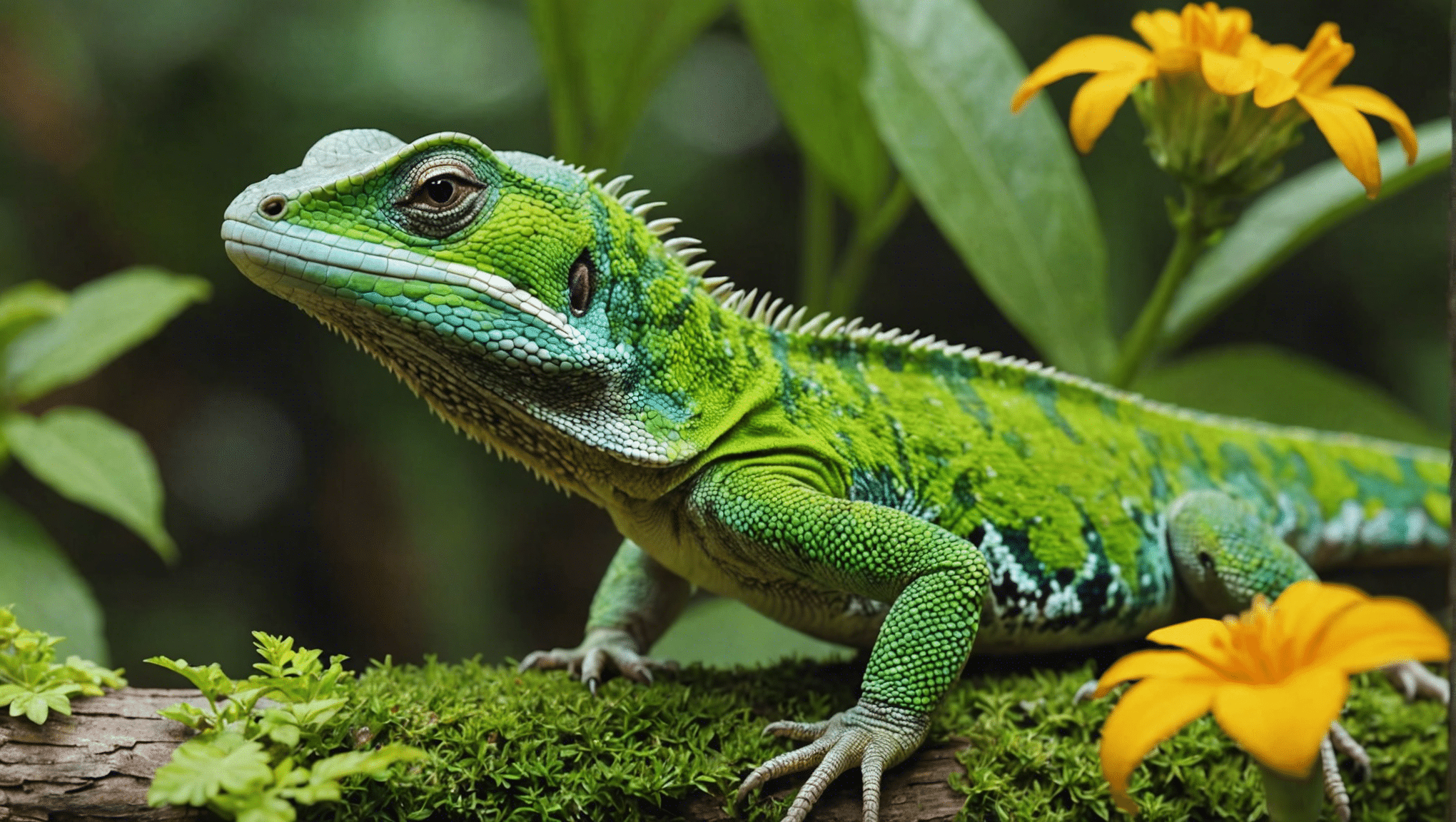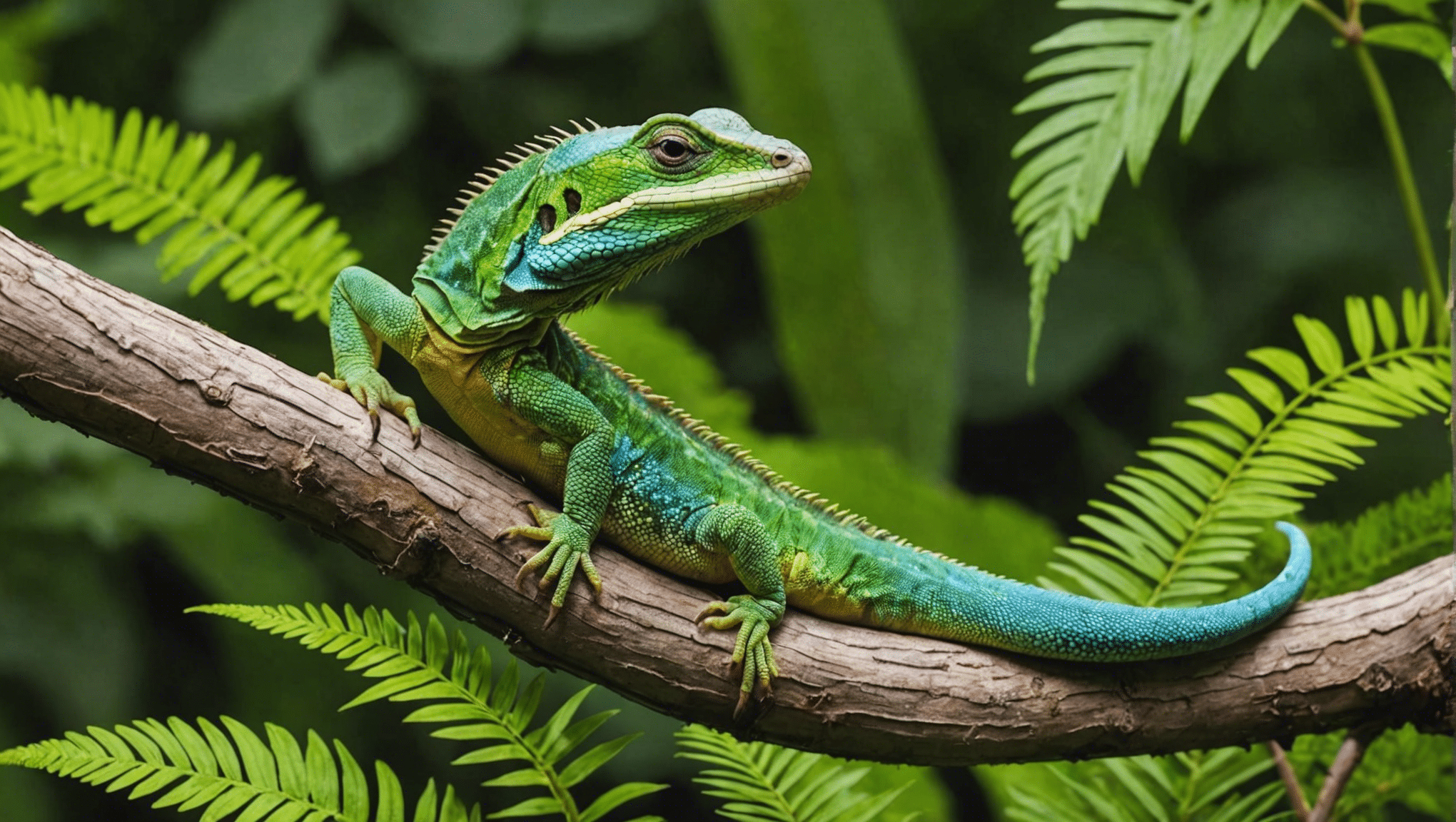The animal kingdom is astounding, teeming with diverse diets and behaviors that allow each species to thrive in its unique niche. Among the most intriguing of creatures in the animal kingdom are lizards, which boast a vast array of dietary habits that are as varied as their habitats and species. Understanding what fuels these agile reptiles is essential for anyone passionate about providing superior care for their scaly friends.
Nutritional Needs of Lizards

Nutritional requirements for lizards can be as diverse as their species. Some thrive on a carnivorous diet, while others prefer the greener side of things. To ensure optimal health and vigor, it’s essential to tailor the diet to the species-specific needs of the lizard in your care. Various studies, including a recent discovery detailed in scientific literature, can lend insight into the best practices for feeding these reptiles.
Diverse Diets for Different Species
It’s fascinating to consider the spectrum of dietary preferences across lizard species. For the insectivores, protein-rich live prey such as crickets, mealworms, and flies are not only nutritionally adequate but also provide excellent mental stimulation. Herbivores, on the other hand, flourish on a diet of leafy greens, vegetables, and the occasional fruit. Omnivorous lizards enjoy the best of both worlds, balancing their intake between animal protein and plant-based foods.
To paint a clearer picture of a lizard-friendly menu, here is a bullet list of common food items for each type of lizard diet:
- Insectivorous: Crickets, mealworms, dubia roaches, and waxworms
- Herbivorous: Collard greens, dandelion greens, butternut squash, and berries
- Omnivorous: A mix of both, including protein sources like insects and a variety of vegetables and fruits
Feeding Practices for Optimal Health
The thrill of observing a lizard snatch an insect from the air is unmatched for those with a keen interest in predator-prey interactions. However, to maintain a lizard’s overall well-being, it’s more than just a spectacle. Providing fresh, high-quality food, ensuring proper nutrient balance, and mimicking natural feeding behaviors are all parts of a holistic approach to lizard care. Research can offer additional insights into achieving the perfect dietary balance, potentially increasing the longevity and happiness of these amazing reptiles.
Unusual Lizard Dietary Habits
A dive into the world of unique lizards can reveal some surprising feeding habits. There have been reports of species, recently discovered in habitats spanning from Southeast Asia to the remote corners of the globe, exhibiting unexpected dietary preferences that challenge our current understanding. Encounters with such extraordinary creatures encourage a closer look at the nutritional complexities within the lizard kingdom, shedding light on the adaptability and resourcefulness of these animals.
Recommended Feeding Schedules and Portions
Maintaining a well-structured feeding schedule is crucial for lizards to prevent obesity and other health issues. The portion size and frequency should reflect the lizard’s age, species, metabolism, and activity level. For many lizard enthusiasts, the practice of providing appropriate meal portions can be just as rewarding as observing their pets’ natural hunting prowess.
The following general recommendations can serve as a guideline:
- Juveniles: Daily feeding, small portions to support growth
- Adults: Feed every other day or as appropriate for species
- Geriatrics: Tailored feeding to accommodate slower metabolism
Common Questions About Lizard Nutrition
Understanding the intricacies of lizard diets often leads to questions about providing the best care. Below are some frequently asked questions:
Q: Can lizards eat processed human foods?
A: Generally, it’s best to avoid processed foods due to potential health risks.
Q: Is it necessary to provide vitamin supplements?
A: Yes, particularly calcium and vitamin D3 supplements are important for many lizard species.
Q: How do I know if my lizard is getting a balanced diet?
A: Observing their behavior, appetite, and physical condition can give good clues. When in doubt, consulting a herpetological nutrition expert can provide peace of mind.
Rewarding as it may be to see a lizard thriving under your care, it is a significant responsibility that requires a commitment to understanding and meeting their nutritional needs. By paying close attention to their dietary requirements, adhering to strict feeding practices, and continuously seeking knowledge on this fascinating topic, one can ensure that these captivating creatures lead healthy and fulfilled lives.












